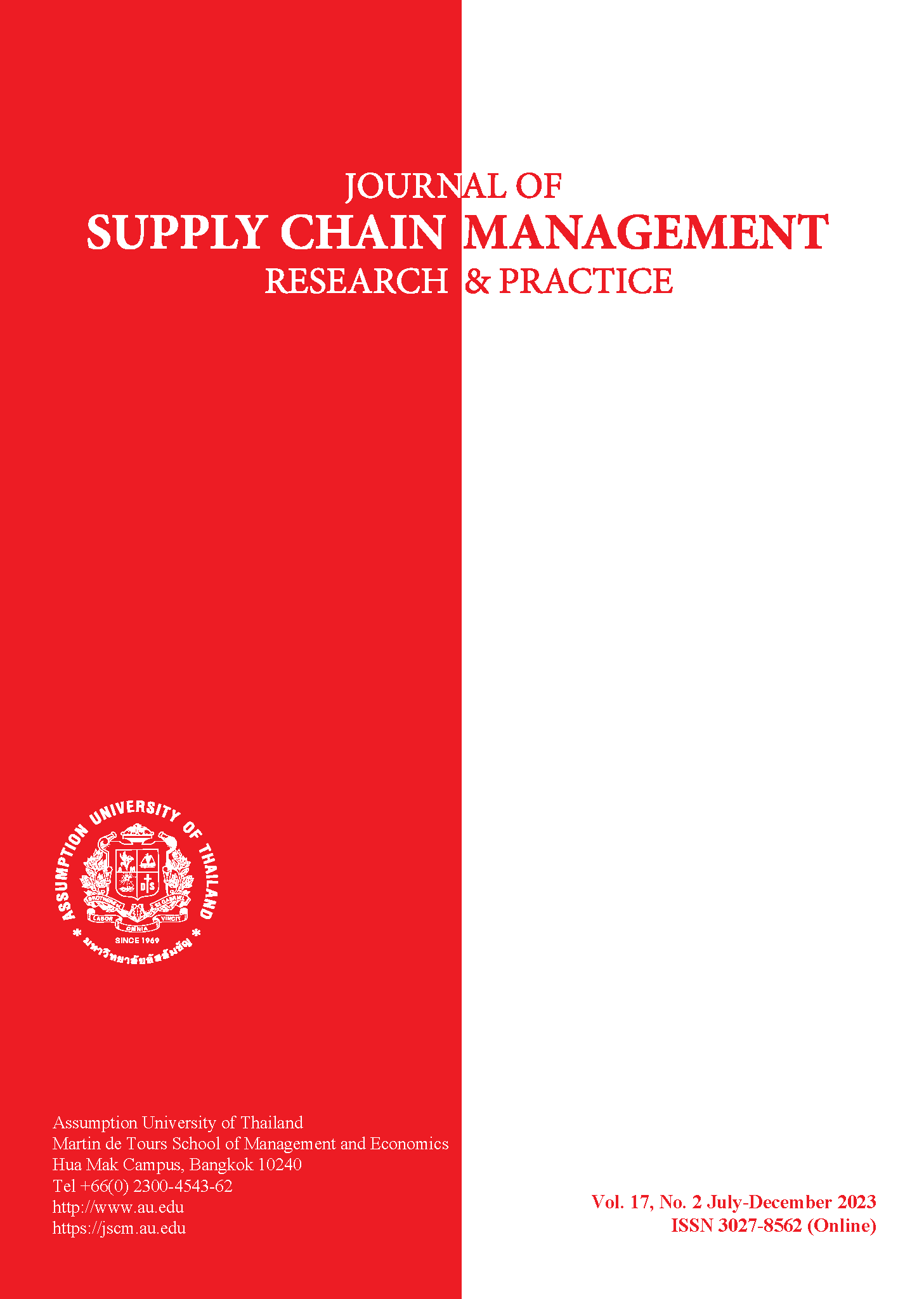MANAGERS' PREFERENCES FOR QUALIFICATIONS OF NEW GRADUATES IN LOGISTICS
Abstract
The purpose of this paper is to address logisticians’ qualifications compared to employers’ preferences. The use of seven determinants in this study is based on Service Performance Units (SPU). The five domains are Reliability, Rates, Resources, Risk Avoidance, and Responsiveness. The support framework is based on the Thai Qualifications Framework (TQF). The TQF five keys attributes are: 1) Development of Morals and Morality (Behavioral Ethics), 2) Knowledge and Ability Skill, 3) Ingenious and Intellectual Skill, 4) Interpersonal Relation with Task Responsibility, and 5) Analytical Decision Making and Communication (Information Technology Application Skill). Mixed methods are employed with both qualitative and quantitative methodologies. First, the attributes of qualified logisticians were reviewed. Second, the hired logisticians’ attributes as perceived by employers’ were obtained by face-to-face interviews and questionnaires, to investigate all related attributes of the new graduates. The research used exploratory and face-to-face interviews with 20 management level exhibitors at the Thailand Logistic Fair 2012 (TILOG2012) to verify the research tool. The research survey was conducted on 42 samples by the random sampling method, from 20 initial and 22 subsequent survey respondents through 60 questionnaires via the Thailand International Freight Forwarder Association (TIFFA) and responses received from its members. To prove the research tool was without acquiescence bias, the test of normality is presented in the demographic part of this report. Data was analyzed by means of standard deviation, correlation, and coefficients of regression. Findings are presented using four method facets (Mean, Alpha, Model Summary, and Predictors in Multiple Regressions) with results in two groups: all logisticians in all fields of service, and only 3rd party logistics (3PL) in transport.
This survey leads to confirmatory factors in building up an examined research tool in the new area of employers’ preferences perspective in logistics service and transport sectors. This study contributes to academicians and lecturers consideration to redesigning the teaching-learning courses, as well as the managers’ requirement of desirable attributes from new graduates as new trainees’ qualifications.


